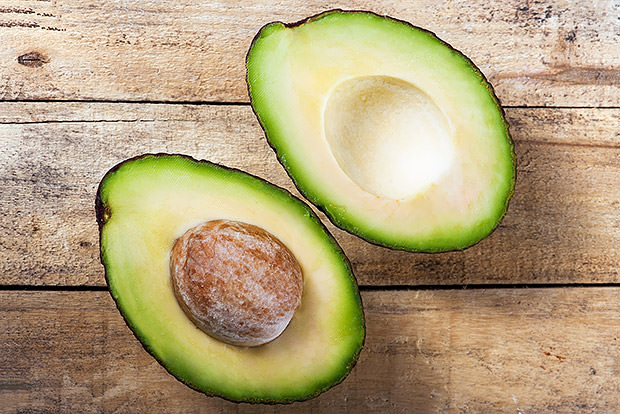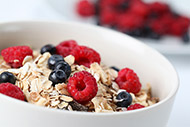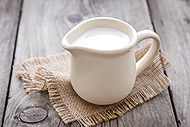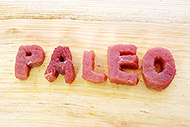
Not only does dietary fat help us absorb fat soluble vitamins, some types of fat protect against disease. These high fat foods are worth adding to your eating plan for both their heart-healthy fat content and the many other nutrients they provide.
Avocados
Eighty-five percent of the calories in an avocado come from fat with the majority being monounsaturated fat that is linked to a reduced risk for heart disease. The fat in avocados also helps us better absorb valuable nutrients in other foods we eat. One study showed that the absorption of lycopene and beta-carotene in a salad was increased when avocado and avocado oil were added. Avocados are also rich in carotenoids and phytosterols that help control inflammation associated with disease. The folate and vitamin B6 in avocados further help to support heart health. One whole avocado contains 20.9 grams total fat and 2.9 grams saturated fat.
Chia Seeds
The Academy of Nutrition and Dietetics reports that chia seeds are an excellent source of fiber. They also provide protein, iron, calcium, magnesium, and zinc. Initial research shows that chia seeds have potential for reducing total cholesterol, triglycerides, and blood pressure. Two tablespoons of chia seeds contains 10 grams of total fat and 1 gram of saturated fat.
Extra Virgin Olive Oil
Research has linked the intake of monounsaturated fat in olive oil to decreases in total blood cholesterol and LDL (bad) cholesterol. Extra virgin olive oil also contains vitamin E, beta-carotene, and polyphenols that act as antioxidants to reduce inflammation and protect blood vessels from damage. Look for extra virgin olive oil from the first pressing, often indicated on the label. Research shows this type may be more effective at reducing inflammation due to the higher concentrations of antioxidants in the oil from the first pressing of the olives. One tablespoon of extra virgin olive oil contains 14 grams of total fat and 2 grams saturated fat.
Peanut Butter
Not only does peanut butter contain heart-healthy fat, research shows that it may influence weight and hunger. Population studies show that those who eat peanuts and peanut butter have a lower body mass index. In one study, subjects who included peanut butter or peanuts with breakfast had an increase in the fullness and satiety hormone, Peptide YY, and reported a lower desire to eat 8 to 12 hours after the meal. Peanuts also contain phytosterols that reduce cholesterol and may prevent cancer. Two tablespoons of peanut butter contains 15 grams of total fat and 2 grams of saturated fat.
Tahini
Tahini is a paste made from sesame seeds that provides a variety of minerals, including copper, manganese, calcium, magnesium, selenium, and iron as well as fiber and vitamin B1. The sesame seeds used to make tahini contain a special kind of fiber called lignans. This fiber has been found to reduce cholesterol and prevent high blood pressure. Two tablespoons of tahini contains 13 grams total fat and 1.5 grams saturated fat.
Walnuts
Walnuts are some of the best studied nuts and receive recognition for containing high amounts of omega-3 fatty acids. Walnuts are also high in a less common version of vitamin E (gamma-tocopherol), which is especially protective for heart health. In addition to heart healthy fat, research shows that walnuts contain a rare variety of phytonutrients that are found in few other foods. There are 20 grams of total fat and 2 grams of saturated fat in 1 ounce of walnut halves.
Sources



 3 Healthy Lunches for Your Work Week
3 Healthy Lunches for Your Work Week
 5 Tips for Stretching Your Budget for Healthy Food
5 Tips for Stretching Your Budget for Healthy Food
 Best Ways to Reduce Added Sugar
Best Ways to Reduce Added Sugar
 Healthy Tips to Lighten Up Picnic Foods
Healthy Tips to Lighten Up Picnic Foods
 Do You Need to Drink Milk?
Do You Need to Drink Milk?
 Tips to Keep Track of Water Intake
Tips to Keep Track of Water Intake
 Ways to Hydrate
Ways to Hydrate
 What Is a Paleo Diet?
What Is a Paleo Diet?

 Pinterest
Pinterest RSS Feed
RSS Feed